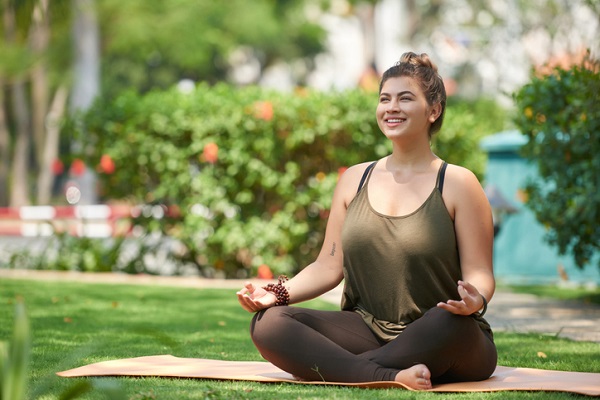If you’re studying wellness counselling, it’s important to understand the broad array of tools you can use to improve your clients’ wellbeing. One powerful tool that wellness counsellors can utilize in their practice is meditation.
Meditation has roots going back thousands of years, and in the past few decades it has surged in popularity in the West. Far from being a fad, meditation has scientifically proven health benefits. This article will explore some of these benefits, to help illuminate why mediation is important to wellness.
1. Meditation Helps Nurture Relationships by Building Compassion for Others
Wellness counsellors are trained to help clients nurture relationships. However, healthy relationships can only exist when one expresses compassion towards others. In one study, researchers assigned one group to an 8-week meditation course while another group was put on a waitlist for the course. After the 8-week period, each participant was asked to come to the lab supposedly for more tests.
While there, they sat in the waiting room, which had three chairs: two were taken by actors while the participant sat in the third. Then, another actor appeared in crutches, leaned against the wall, and sighed. The other two actors ignored the person in crutches, leaving only the participant to respond. Only 16% of participants in the non-meditation group gave up their seats to the person in crutches, compared to 50% of those who had meditated—demonstrating that meditation can help foster compassion (Condon et al, 2013)
2. Become a Wellness Counsellor and Learn How Meditation Reduces Stress
Approximately 23% of Canadians over 15 say that most days are either “quite a bit” or “extremely” stressful (Statistics Canada, 2014). During your diploma in wellness counselling, you’ll study emotional and mental wellness, which can be greatly impacted by such high stress levels.
Overwhelmingly, Canadians say that work is their main source of stress (Crompton, 2011). Fortunately, meditation can help reduce this type of stress. In a recent UK study, a group of healthy employees were instructed to use an app to complete daily guided meditation sessions. The results were compared to a second group that did not meditate. After 8 weeks, the meditation group saw a significant reduction in job strain and distress, as well as improvement in wellbeing and perceptions of workplace social support. After 16 weeks, the meditation group still reported higher rates of wellbeing and less job strain (Bostock et al., 2019).

Meditation can help reduce work-related stress
3. Meditation Can Offer Relief for People Suffering From Chronic Pain
Chronic pain is widespread, with approximately one out of every five Canadian adults suffering from it (Schopflocher, 2011). In wellness college, you’ll learn about physical wellness, which chronic pain significantly decreases. Unlike acute pain, which is largely a biological response, chronic pain involves biological, psychological, and environmental factors (Steiner, 2014). Meditation can help to reduce the intensity of pain due to its beneficial psychological properties.

Meditation may be able to reduce the severity of chronic pain in some people
For example, in one study 342 participants who suffered from low back pain were divided into three groups. The first group was treated with mindfulness meditation, the second with cognitive-behavioural therapy (CBT), and the third with usual treatment. After 26 weeks, the meditation and CBT groups both showed improved low back pain compared to the usual treatment group. However, only the meditation group continued to see improvement after 52 weeks (Cherkin, 2016). That study is just one example of the positive impact meditation can have on one’s wellbeing.
Do you want to become a wellness counsellor?
Contact Rhodes Wellness College to learn about our programs.
Works Cited
Bostock, S., Crosswell, A.D., Prather, A.A., & Steptoe, A. (2019). Mindfulness on-the-go: Effects of a mindfulness meditation app on work stress and well-being, Journal of Occupational Health Psychology, (24)1: 127-138. doi: 10.1037/ocp0000118
Cherkin, D.C., Sherman, K.J., Balderson, B.H., et al (2016). Effect of Mindfulness-Based Stress Reduction vs Cognitive Behavioral Therapy or Usual Care on Back Pain and Functional Limitations in Adults With Chronic Low Back Pain: A Randomized Clinical Trial. JAMA, 315(12):1240–1249. doi: 10.1001/jama.2016.2323
Condon, P., Desbordes, G., Miller, W.B., & DeSteno, D. (2013). Meditation Increases Compassionate Responses to Suffering, Psychological Science, 24(2125). doi: 10.1177/0956797613485603
Schopflocher, D., Taenzer, P., & Jovey, R. (2011). The prevalence of chronic pain in Canada. Pain research & management, 16(6), 445–450.
Statistics Canada. (2014). Perceived Life Stress, 2014. Retrieved from https://www150.statcan.gc.ca/n1/pub/82-625-x/2015001/article/14188-eng.htm
Crompton, S. (2011). What’s stressing the stressed? Main sources of stress among workers. Canadian Social Trends, 11(08), 44-51.
Steiner, B. (2014). Treating Chronic Pain With Meditation, The Atlantic, (April 1). Retrieved from https://www.theatlantic.com/health/archive/2014/04/treating-chronic-pain-with-meditation/284182/










